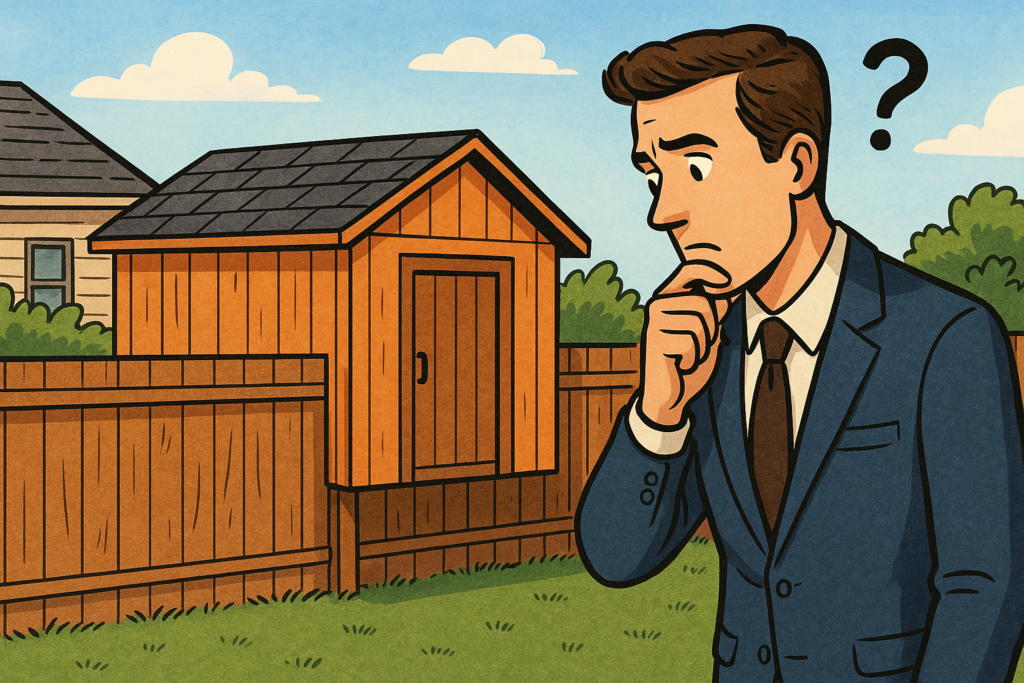A shed, fence, or pool over your property line might seem like a small issue—but under Massachusetts law, it could result in losing legal rights to your land. If you’re dealing with a property line encroachment in Massachusetts, Granfield Legal Services is here to help you resolve it before it becomes a bigger problem.
What Is Property Line Encroachment?

Property line encroachment happens when a neighbor builds a permanent structure—like a shed, driveway, or pool—that extends past their boundary and onto your property. Whether accidental or intentional, encroachments can lead to legal disputes and financial loss.
Risks of Ignoring a Property Line Encroachment in Massachusetts
Massachusetts property law is clear: if you do nothing, you may lose your land. Here’s why prompt action matters:
- Adverse Possession Laws
In Massachusetts, if a neighbor uses your land for 20 years without your objection, they may legally claim ownership under adverse possession. - Real Estate Sale Complications
Unresolved encroachments can stall a home sale, scare away buyers, or create title insurance issues. - Reduced Property Value
A visible boundary dispute can lower your property’s market value and restrict future improvements. - Liability Risks
If someone is injured on your land—even if it’s being used by your neighbor—you could be legally responsible.
How to Handle a Property Line Dispute in Massachusetts
1. Confirm the Property Lines with a Survey
Before taking action, hire a licensed surveyor to determine the official property boundaries. This is essential documentation if legal steps become necessary.
2. Talk to Your Neighbor
Open, respectful communication can often solve misunderstandings. Many encroachments occur due to mistaken assumptions about the property line.
3. Send a Legal Notice
If informal discussions don’t work, having a real estate attorney issue a formal demand letter helps preserve your legal rights and start negotiations.
4. Negotiate an Agreement
Depending on the structure and situation, you may resolve the encroachment through a removal agreement, easement, or land swap.
5. Take Legal Action if Necessary
When no agreement is possible, a quiet title or trespass action in Massachusetts Land Court may be required to resolve the dispute.
Property line encroachments involve complex legal rights. At Granfield Legal Services, we provide expert legal guidance in:
Why Hire a Real Estate Attorney for Property Encroachments?
- Reviewing surveys and deeds
- Sending demand letters
- Negotiating with neighbors
- Filing quiet title or adverse possession lawsuits
We’ve helped Massachusetts homeowners protect their land, maintain property value, and avoid costly disputes.
Disclaimer
This blog is intended for informational purposes only and does not constitute legal advice. Always consult with a licensed attorney regarding your unique situation.
Disclaimer
This post is for general informational purposes only and does not constitute legal advice. For legal guidance specific to your situation, please consult an attorney licensed in Massachusetts.
Take Action Today
If your neighbor’s shed, fence, or pool is on your property, don’t wait. Encroachments don’t fix themselves—and the longer you delay, the more you risk losing control over your land.
Granfield Legal Services is ready to help. We offer clear guidance, personalized legal strategies, and experienced representation in Massachusetts boundary disputes.

Be First to Comment